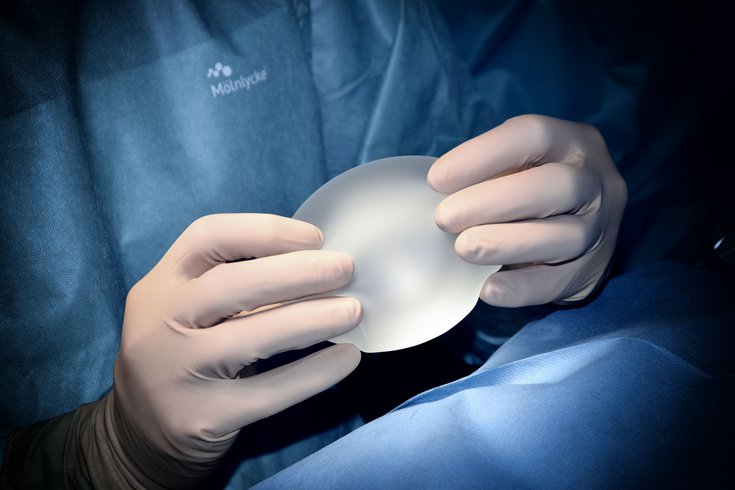
September 09, 2022
 Philippe Spitalier/Unsplash
Philippe Spitalier/Unsplash
The FDA warns that breast implants may be tied to squamous cell carcinoma and certain types of lymphoma. Though the occurrence of these cancers is believed to be rare, the agency urges people to consider all risks before undergoing implant surgery.
Getting breast implants may carry cancer risks that extend beyond the link to certain lymphomas, the U.S. Food and Drug Administration warned.
The FDA is investigating cases of squamous cell carcinoma – a skin cancer – and several additional lymphoma types reported in women with breast implants. The occurrence of these cancers is believed to be rare, but the exact rate remains unknown. The agency stressed that people should weigh all potential health risks before having implant surgery.
There have been less than 30 documented cases of SCC and fewer than 20 lymphoma cases, the FDA said. The types of lymphoma found in these cases differs from those previously linked to implants. The cancers have been found in the scar tissue that forms around breast implants.
"After an initial extensive review, we currently believe that the risk of SCC and other lymphomas occurring in the tissue around breast implants is rare," said Dr. Binita Ashar, director of the FDA's Office of Surgical and Infection Control Devices. "However, in this case, and when safety risks with medical devices are identified, we wanted to provide clear and understandable information to the public as quickly as possible."
In some cases, patients were diagnosed years after having breast implants, Ashar said. The cases included people who received textured or smooth implants, and those containing saline or silicone.
There is no need for people with the implants to have them removed, the FDA said, but they should be aware of the symptoms of these cancers, which include swelling, pain, lumps or changes in the skin. Health providers and people with breast implants are asked to report any cases of these or other cancers found around implants.
Risk factors for cancers near implants remain unknown, Ashar said.
Squamous cell carcinoma is the second most common form of skin cancer. It is characterized by abnormal, accelerated growth of squamous cells which are thin, flat cells that look like fish scales. Lymphoma is a cancer of the lymphatic system, which includes the lymph nodes, spleen, thymus gland and bone marrow. The lymphatic system is part of the body's immune system.
Last year, more than 365,000 people received breast implants, a 44% increase from 2020, though that year was impacted by the COVID-19 pandemic. Most are put in for cosmetic purposes, but others are used as part of reconstructive surgeries.
The cancer cases acknowledged by the FDA are not the first to link breast implants to the development of certain diseases.
Scientists have been warning about an increased risk for certain systemic diseases, including autoimmune diseases, since the 1960s. In 2011, the FDA first identified a potential relationship between breast implants and the development of a rare cancer in the immune system called breast implant-associated anaplastic large cell lymphoma, or BIA-ALCL.
In recent years, efforts have been made to better inform breast implant patients about potential health risks.
In 2019, the pharmaceutical company Allergan issued a worldwide recall of Biocell textured breast implants and tissue expanders that had been linked to BIA-ALCL. Doctors are asked to report cases of this rare cancer in people with breast implants to a FDA registry.
And last year, the FDA began requiring breast implants to contain a boxed warning and a patient checklist informing people that implants are not designed to last a lifetime. About 20% of women need to have their implants removed within 8 to 10 years due to complications.
While most women with breast implants have no serious complications, there is the risk of scar tissue, breast pain, infection, changes in nipple and breast sensation, implant position changes and implant leakage or rupture, the Mayo Clinic says. Some women may develop breast implant-associated systemic symptoms including fatigue, memory loss, skin rash, trouble thinking or joint pain.
Neither saline nor silicone breast implants appear to be linked to an increased risk of breast cancer, according to the Susan G. Komen Breast Cancer Foundation.
Breast implants only can be sold to health care providers who discuss all their potential health risks and ask patients to sign the checklist showing they are aware of these risks.